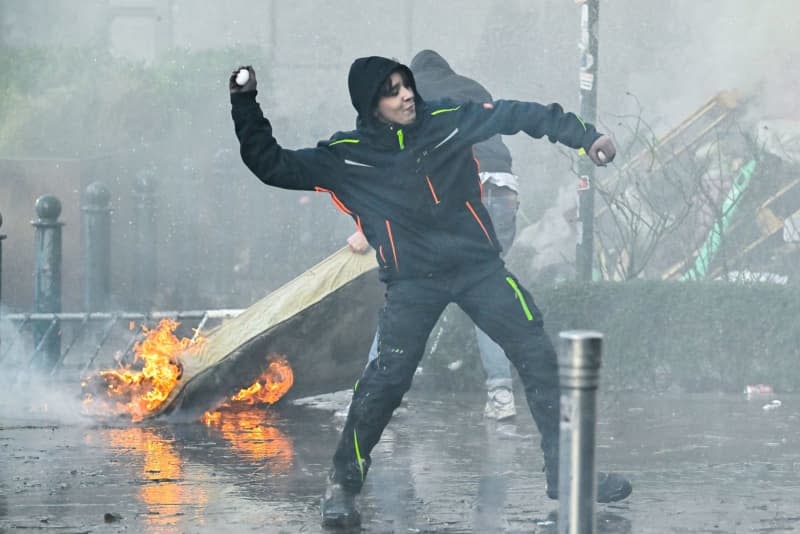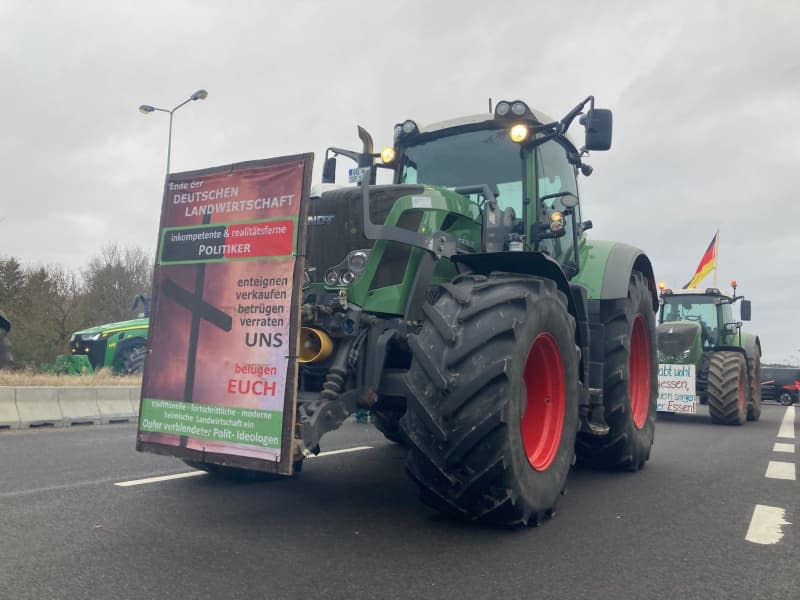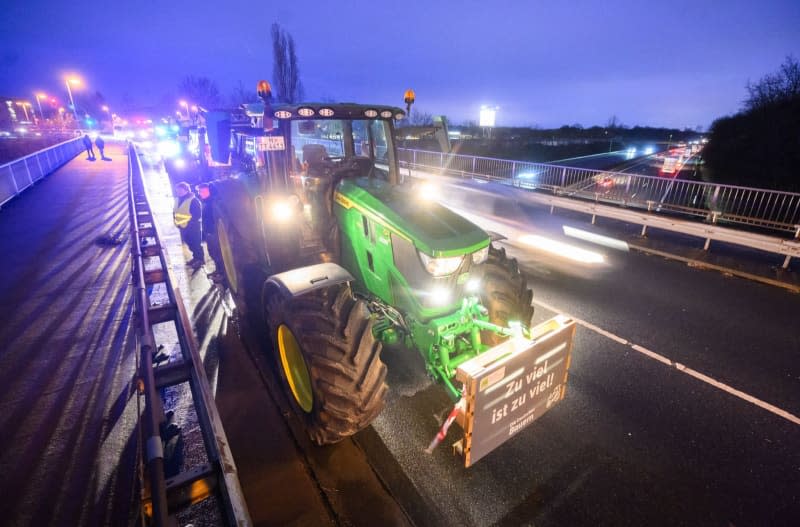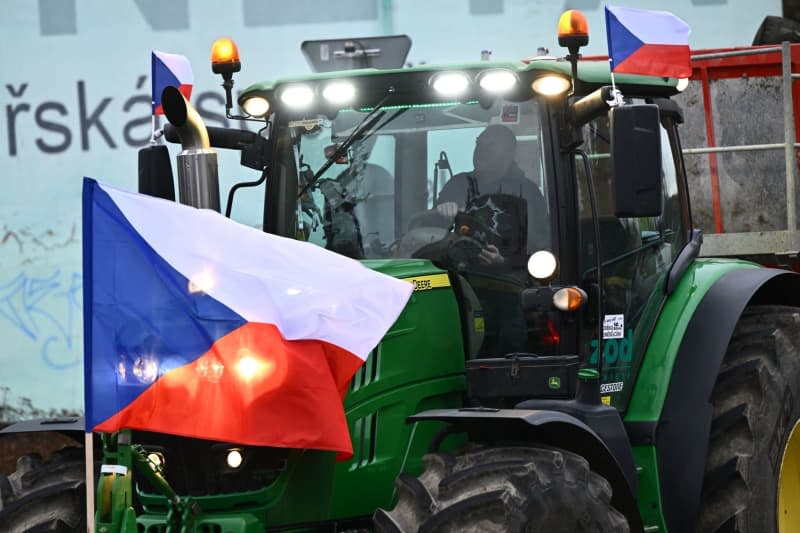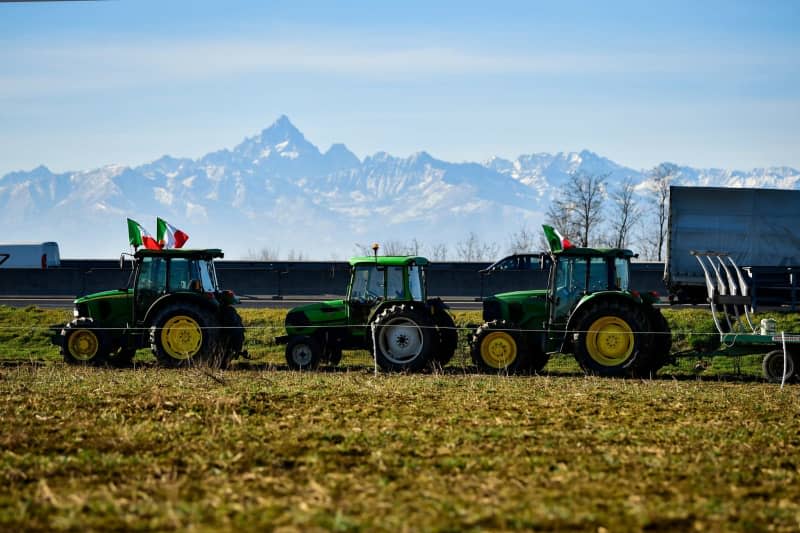Multiple beefs: Europe's farmers frustrated by low income, high costs
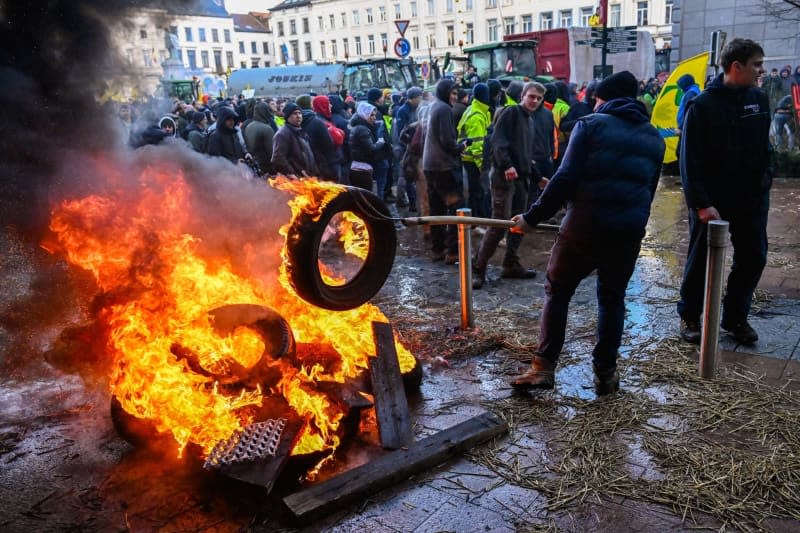
Rising costs, red tape and market fluctuations all spell more stress for German farmer Michael Schneller.
He loves growing cereals, rapeseed and sugar beet on his 125-hectare farm in Niddatal-Assenheim near Frankfurt. But he and other farmers feel that increasing pressure is making the job intolerable.
"I am a farmer in heart and soul," says Schneller, but adds that he would want to see more relief and a "commitment to agriculture," otherwise there is a risk that farmers will quit and sell up, as the government weighs slashing support for agricultural diesel.
Throughout Europe, convoys of tractors are blocking motorways as Europe's farmers protest falling prices for their products and environmental regulations they say will be costly to implement.
Farmers are clashing with police from Germany to Romania, Lithuania and France.
"All European farmers have been fed up for some time," Alessandra Kirsch, head of studies at the Agriculture Stratégies think tank, tells dpa.
Life became tougher as prices for agricultural products began falling at the start of the year, she says.
"It took very little for the last straw to break the camel's back," says Kirsch. "Everyone really shares the feeling that more and more is being demanded of them."
Regulations are causing problems in many places, with farmers in France fighting new rules for several months.
They are furious at falling income levels coupled with environmental regulations issued by the European Union.
Adding insult to injury, the price of agricultural diesel also rose in France.
So farmers blocked motorways for several days and dumped piles of tyres, soil and manure in front of official buildings.
Some also looted lorries from abroad and threw fruit and vegetables onto the road, incandescent at lower-cost imports in what they see as unfair competition.
Trade unions seek emergency support for those worst affected, particularly organic farming and viticulture, plus compensation for the higher diesel price.
They also want Paris to drop regulations on water and pesticide use. Here, as in many places, their protests have been infiltrated by extremists positioning themselves as friends of the farmers.
Polish farmers are also protesting about competition, focusing on agricultural products from Ukraine which are exempt from customs duties.
Ukraine is a major grain producer but struggles to export foods due to Russia's blockade of its Black Sea ports amid a full-scale invasion launched nearly two years ago.
The European Union lifted tariffs on Ukrainian imports and expanded trade routes through the bloc by road and rail but farmers in several countries slammed this as unfair competition.
In Poland, farmers' protests were backed by the right-wing nationalist party Konfederacja, which is sharing anti-Ukraine propaganda.
There were similar protests in Romania, Slovakia, Hungary and Bulgaria, all focused on unfair competition undercutting cereals prices.
Romanian farmers blocked roads for days including at border crossings with Hungary, Serbia and Ukraine but largely headed back home again when the government promised to drop car insurance costs, one of their main demands.
The farmers also distanced themselves from attempts by far-right politicians to influence the protests. But some of their calls remain unanswered including for tax relief, more subsidies and better loan conditions.
In Lithuania, austerity plans and agricultural policy drove thousands of farmers onto the streets demanding that the transit of Russian grain through Lithuania be stopped, alongside concerns about fuel prices. Further issues include regulations on protected areas and milk prices.
The protests in Germany were sparked by plans to drop agricultural diesel subsidies in place for more than 70 years. It is now to end gradually in a concession to protests.
The government also dropped plans to cancel a tax exemption for agricultural vehicles, but farmers say more is needed. Here too, far-right extremists and conspiracy theorists are trying to steer the movement, says Matthias Quent, an extremism researcher.
Dutch farmers have been protesting for years about rules that will lead to the closure of more than 30% of farms, estimates say.
The protests in 2021 and 2022 soon became an outlet for broader public dissatisfaction and led to the founding of a new populist party, the BauerBürgerBewegung (BBB), which translates as the Farmer Citizen Movement.
Other radical far-right parties also tried to steer the farmers' discontent for their own purposes and right-wing BBB emerged as the strongest party in all areas in regional elections in 2023.
While the demands of farmers across Europe differ, criticism of EU agricultural policy is a common factor, says Kirsch.
The EU pays farmers tens of billions in annual subsidies yearly, mainly allocated by area. But some are linked to environmental conditions and the budget is not high enough and no longer suited to current needs, she says.
"These movements in Europe show one thing: how difficult it is for EU agricultural policy to support a wide variety of agricultural models and business projects," says agricultural sociologist François Purseigle from the INP-ENSAT agricultural university in Toulouse.
But like farming itself, across Europe, local factors prevail, with farmers' frustrations varying widely from one place to the next, both experts say.
